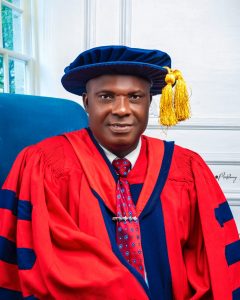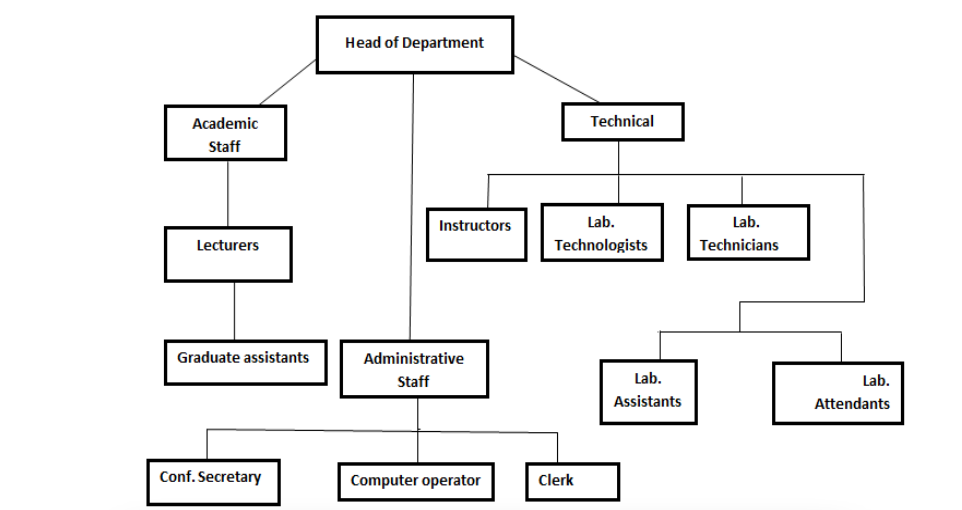The Chemical/Petrochemical Engineering Department currently runs programmes leading to the Bachelor of Technology (B. Tech.), Master of Technology (M.Tech.) and Doctor of Philosophy (Ph.D.) degrees and Post Graduate Diploma (PGD.). These programmes are concerned with transmission of knowledge and concepts in science and technology and are primarily aimed at producing Chemical/Petrochemical Engineers who would function immediately and effectively in government and industry in the planning, reactor design, construction, modeling, simulating, optimizing and management of facilities serving the needs of society. The B.Tech. Programme runs for duration of five years, consisting of nine semesters of study in the University, one semester and two long vacation periods (12 months) of compulsory practical training in laboratory, workshop and industry. The programme was approved by the Council of Registered Engineers of Nigeria (COREN) after the first visitation in 1984, and also had accreditation by the National Universities Commission (NUC) in 1990. The first batch of the 30 students of the Bachelor Degree programme in Chemical/Petrochemical Engineering graduated in 1985; and to date over 1000 students have graduated from the B. Tech. Programme. An intermediate level technicians’ programme leading University Diploma (UD.) was phased out with the establishment of the River State Polytechnic, Bori in 1987. The Petroleum and Gas Engineering Programme was introduced into the Department in 1995. Consequently the name of the Department was modified to “Department of Chemical/Petrochemical and Petroleum Engineering”. In the year 2014, the department of Petroleum Engineering was separated from Chemical/Petrochemical Engineering by the Senate. The Petroleum Engineering Department is fully accredited by NUC and COREN and is operating on its own. The Department has five Laboratories namely: Unit Operations Laboratory, Analysis Laboratory, Petroleum General Laboratory, Chemical Kinetics Laboratory and Petroleum Engineering Laboratory. There is also a well equipped Mechanical Engineering Workshop servicing our Department, consisting of a Machine Shop, Foundry Section, Sheet Metal Section, Wood-Work Section, and Plant Maintenance/Automobile Section. The Workshop is run by 5 Technologists/Senior Technicians and Craftsmen. Considerable effort has been made during the past 32 years to strengthen the department in terms of the quality of programmes, number and quality of staff, facilities and equipment. The Department has been involved in a variety of research programmes. Individual research projects and collaborative research are mainly in the areas of Petroleum and Petrochemical Processing, Industrial Chemistry and Thermodynamics, Process Modelling, Control and Dynamics, Chemical Kinetics/Catalysis and Reactions and Reactor Design, Unit Operations and Process Design, General Engineering, Chemical Engineering Laboratory, Seminar and Project. The emphasis is to develop appropriate technology, aimed at finding solutions to problems of local interest. The number of research publications of staff has increased considerably over the years.
The Chemical/Petrochemical Engineering Department is noted for providing outstanding consultancy services. The University has benefited from these services in many of her developmental efforts. Being located in a major industrial centre, the Department has enjoyed the patronage of many industrial organizations in and around River State, especially in the areas of environmental pollution control, crude oil testing and characterisation. Indeed, the department is unique in making enormous and enviable contributions towards the consultancy efforts of the University. The Department has published a programme prospectus which contains adequate information to students and the general public on the Bachelor of Technology (B. Tech.) programme of the Department. Another departmental publication deals with the postgraduate programmes, run by the Department. Presently, the Department has a total of 23 academic staff, (18 for Chemical/Petrochemical Engineering and 5 for Petroleum and Gas Engineering Programme). These include 3 Professors and 2 Readers.


